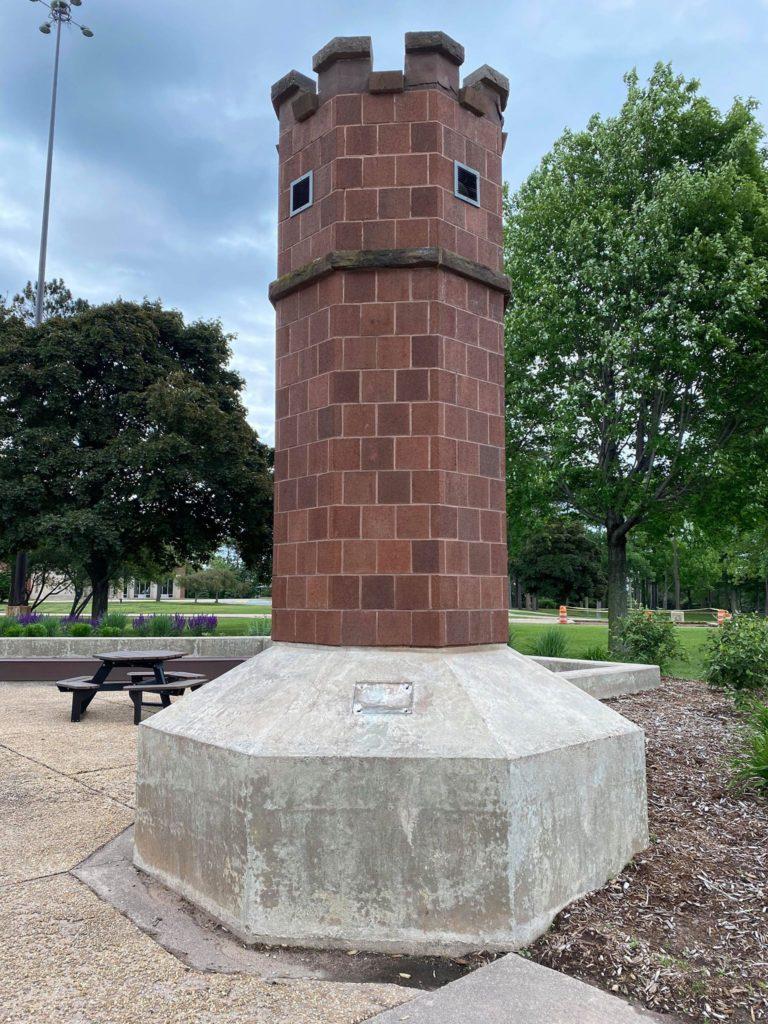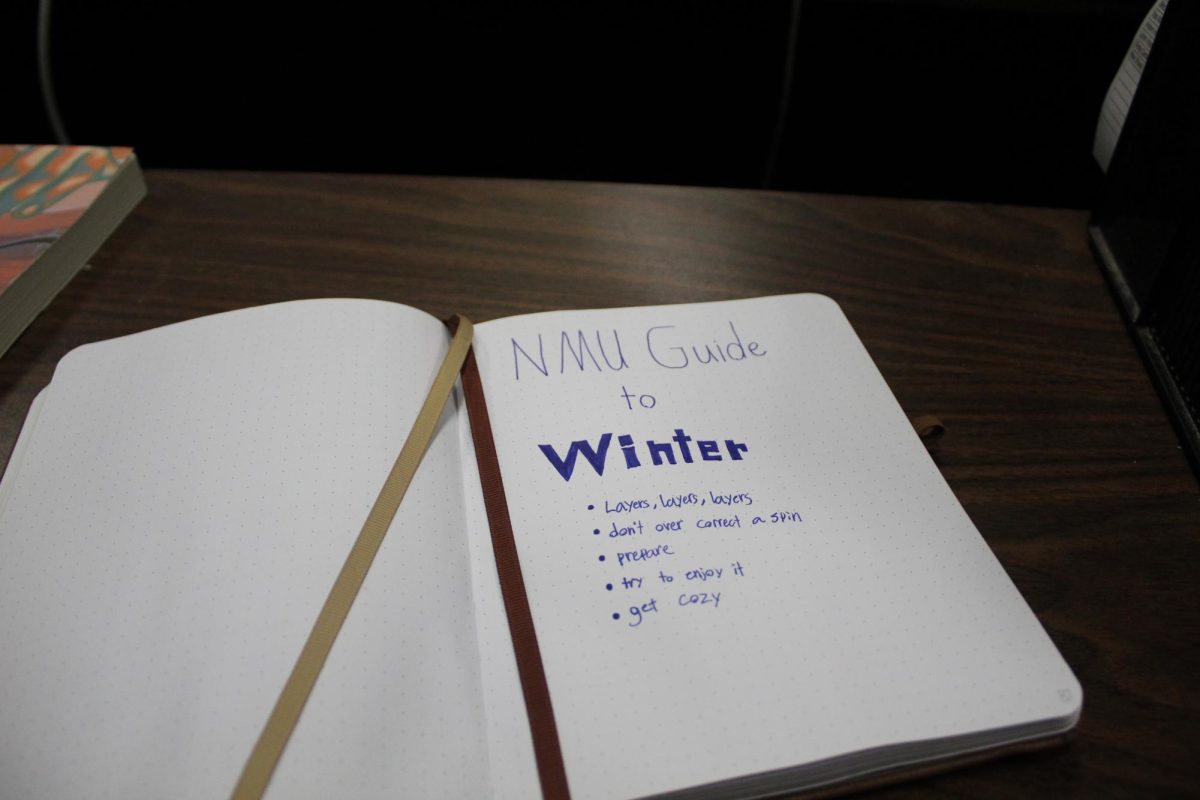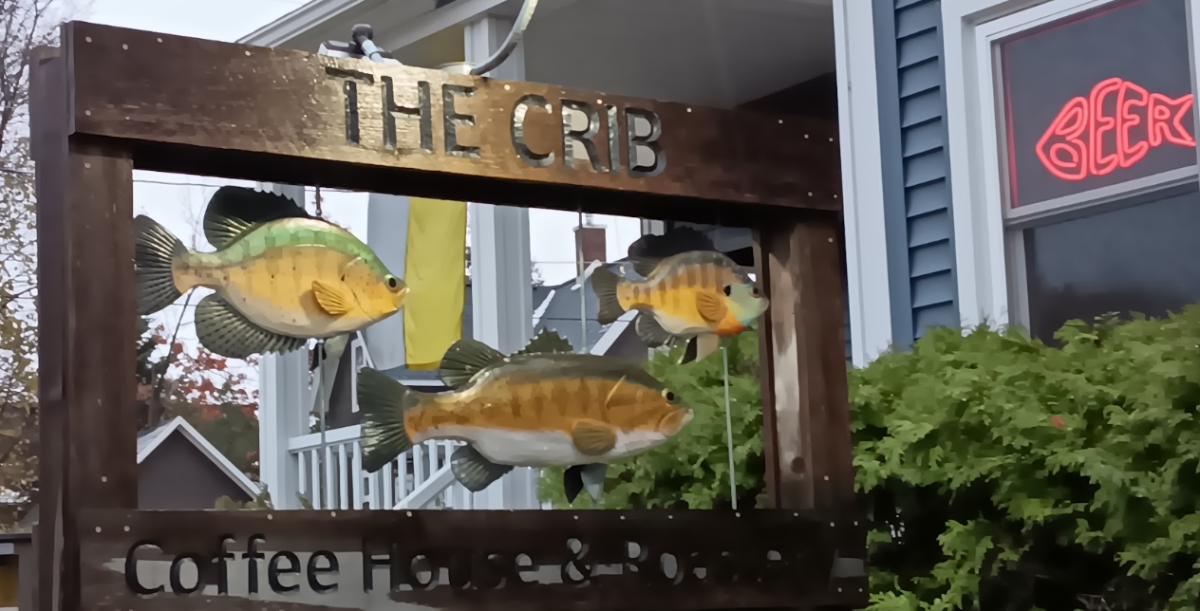Northern Michigan University officials removed a plaque on the Carillon Towers after an online petition calls for the monument to be rededicated. The Change.org petition, written by John Doe, an anonymous author, calls for the rededication of the towers after it was found to be linked to John P. McGoff, a newspaper mogul who owned several publishing companies known for their promotion of the pro-apartheid government in South Africa.
“A 1980 plaque commemorating the construction of the Carillon Towers near the Northern Center at Northern Michigan University is the subject of a recent anonymous Change.org petition. Knowledge of the plaque’s connection to controversial campus events in the 1980s came about due to the petition. According to minutes of the board meeting on April 28, 1988, Mr. McGoff’s donation was returned. The plaque will be removed,” NMU said in a press release regarding the removal of the plaque.
McGoff owned two publishing companies and over 70 newspapers, including in the U.P. where his company Panax owned the Mining Journal. In 1964, he became a member of NMU’s first Board of Control until he resigned in 1972.
During 1979, a lecture series was named after McGoff following a $300,000 donation he made to NMU. The following year, McGoff donated an additional $40,000 for a pair of carillon towers to be constructed using recycled sandstone from the recently demolished Kaye Hall. The Carillon Towers were built outside of the University Center and a plaque with the name of McGoff and his wife Margaret was dedicated.
“I’m not even close to surprised. That’s the world we live in, but it makes me feel overlooked, the idea that someone on campus could have known the true origin of it and never spoke out, well that speaks volumes,” junior graphics design major Ali Davis who signed the petition said.
In October 1979, students gathered in 101 Jamrich Hall to listen to a debate NMU’s choice to name the lecture series after McGoff. Professor of Philosophy, Dr. James Greene and Dr. Robert Allan Cooke, debated the issue of McGoff’s influence over who is chosen as speakers for the series.
“The faculty is publicly calling to your attention, the whole community’s attention to the dangerous connection to the McGoff lecture series and outside propaganda money,” Greene said.
A 2015 article in Northern Magazine written by University Archivist, Marcus Robyns, writes that in the year 1978, McGoff allegedly accepted $11 million from the South African government in an unsuccessful attempt to purchase several large newspapers to support news reports favorable to the apartheid regime. The article also describes events in the 1980s when Nobel Peace Prize recipient and Holocaust survivor Elie Wiesel initially accepted an invitation from Northern to speak at the school but later refused to attend.
“In a radio interview with Public Radio 90, Wiesel expressed regret and anguish but decided that his visit would cast doubt over the legitimacy of concerns regarding McGoff and his support of apartheid,” Robyns writes.
In 1983, McGoff underwent an investigation by the Federal District Court to determine whether he was in violation of federal law by acting as an unregistered agent of the pro-apartheid South African government. The New York Times published an Associated Press article about the court’s decision to acquit him after Federal District Judge, Charles R. Richey of Washington, ruled it was past the statute of limitation in December of 1987.
“Mr. McGoff’s attorney, Raymond Larroca, argued that a continuing offense is a legal term and does not mean an offense that goes on forever,” The Associated Press writes.
McGoff donated $500,000 to Michigan State University to dedicate a theater in his wife’s name in 1982. In objection to his involvement with apartheid, the MSU community rallied against the naming. In response to a memorandum from the African Students Union detailing McGoff’s racism, MSU returned the donation the following year.
The petition calls not only for the removal of the plaque but also for the rededication of the towers to be a resource to both promote racial equality and educate on the atrocities of apartheid in South Africa. As of Saturday, June 20, the petition has 1,208 signatures.
“To me, it’s very simple: do you have morals of right and wrong. Why would we debate those ideas that hurt the integrity of the whole idea of morals,” Davis said. “We have a whole art department with amazing artists. I’m sure we could always build something new.”




























